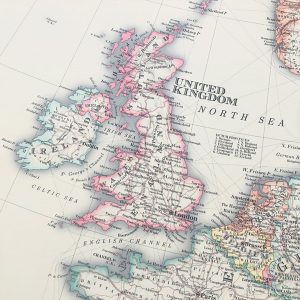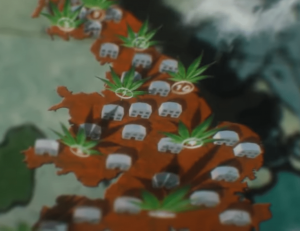God Save Our Gracious Kingpin


The Gentlemen differs from narco-related entertainment primarily due to the story’s location. Whereas most narco operations occur in the Americas, Ritchie’s narrative takes audiences across the seas to the United Kingdom, a nation with an infamous drug history. With its notorious past, the UK is an exciting location to place the story of cannabis cultivators and smugglers. The country lags in the legalization efforts of other major regions of the world, with the National Health Service reportedly refusing to prescribe cannabis-based medicine to epileptic children in 2020. However, it is important not to disregard the British relationship with cannabis. In fact, cannabis became popularized in Western medicinal practices due to William Brooke O’Shaughnessy’s experimentation with the plant in England in 1842. The UK would later pioneer the criminalization of the drug under the Dangerous Drugs Act of 1920, with the United States following suit in 1937. Since its criminalization, cannabis has been the subject of much legal contention in the UK, with the drug shifting between legal classifications throughout the years.
Although Ritchie’s film explores the cultivation of the modern, highly concentrated cannabis flower, a much more prominent relationship is that between the United Kingdom and hashish, a cannabis concentrate popular in Europe. The reason hashish is much more prominent in the UK than in the US is the nation’s colonialism in Africa, Asia, and the Middle East. The history of hashish traces to the Middle East, most prominently in Morrocco, Egypt, Pakistan, and Afghanistan. Throughout British imperial history, significant hashish consumption occurred within the country. Although hashish is not typically cultivated within the UK, large quantities of the drug have been successfully smuggled in throughout the years.
Regarding Ritchie’s action comedy, it is important to remind viewers that the story presented is entirely fictitious. No evidence suggests that wealthy British landowners are hiding large-scale marijuana farms beneath their land in the vast cannabis network. However, observing the historical relationship between the UK and hashish consumption offers significant insight into modern cannabis practices within the country. One prominent individual deeply involved in hashish smuggling into the UK was Howard Marks. Widely known as “Mr. Nice,” Marks resembles a hippy version of Mickey in his cannabis activities and covert operations. Involved in large-scale smuggling operations, Marks claimed to be consistently smuggling around 30 tons of hash worldwide at the peak of his career.
Throughout the 1970s and into the early 80s, Marks operated a web of smuggling rings to import hash from the Middle East and South Asia into Europe and the United States. Although his operations rarely included domestically cultivated cannabis, Marks’s activities within the UK emerged at a time when cannabis was becoming increasingly popularized in British counterculture and media movements. James Mills, a leading scholar on drug history in the British Academy, marked the growing consumption of cannabis in the UK as a trend “when the Empire was in decline and the politics of imperialism were being rejected.” As more mainstream figures were associated with cannabis consumption, more arrests occurred in England. Through it all, Howard Marks deepened the enduring relationship between the UK and cannabis. The United Kingdom’s extensive history with the drug has popularized cannabis consumption. For example, the Office for National Statics found that in June 2022, 16.2% of adults aged 16-24 reported using cannabis over the past year. This contrasts with the 4.0% of adults aged 16-24 who reported using cocaine. Understanding the British public’s relationship with cannabis may account for the depiction of cannabis as a harmless drug and a significantly less violent industry that Ritchie portrays in his film.

One aspect of the cannabis industry in England that Ritchie does hint at is the secret cultivation of the drug in hidden countryside farms. In The Gentlemen, Mickey’s network of cannabis farms is hidden under the protection of aristocratic families with large estates looking to earn extra cash on the side. However, the reality of cannabis cultivation in the UK is significantly less covert. According to Vice journalist Max Daly, large amounts of cannabis are now being cultivated in England’s “no-man’s land” between motorways junctions “where most people have no reason to ever step foot in.” These public cultivators, known as “Guerilla Growers,” are becoming increasingly popular throughout the UK, with reports of between 1,000 and 3,000 guerilla growers now actively cultivating cannabis on public land. This new process of growing cannabis in the UK offers a more discrete alternative to the standard warehouse cultivation that authorities often uncover. Both Mickey and the “Guerilla Growers” utilize the limited land space in England in unique ways to grow their product. As Fletcher (Hugh Grant) announces succinctly, “You have to be creative. You need an angle” when growing cannabis in the UK (Ritchie, 0:16:05).
However, cannabis factories are still a popular way of cultivating the drug in the UK, and the continuation of this industry has revealed some harrowing information about the process. For example, reports over the past thirteen years have publicized the slave-like system of Vietnamese child labor in the underground cannabis scene in England. A study by the Association of Chief Police Officers found that Vietnamese children were being kidnapped by Chinese gangs and forced to cultivate cannabis in hidden farms all over the country. A similar study found that in 2012, 96% of all humans trafficked into the cannabis industry were from Vietnam, and 81% were children. The devastating reality of the cannabis industry in England raises deep moral questions when considering Ritchie’s comedic depiction of the industry in The Gentlemen. Cannabis is significantly less stigmatized compared to other drugs, such as cocaine and crack, in the US and Western Europe. However, narco and drug-related entertainment often portray drug industries as universally inviting of violence, greed, and inhumane destruction. By analyzing the difference between the industry depicted in Ritchie’s film and the present reality of cannabis operations in the United Kingdom, viewers are invited to enjoy the seemingly harmless action-comedy while recognizing the severe realities of the situation.
